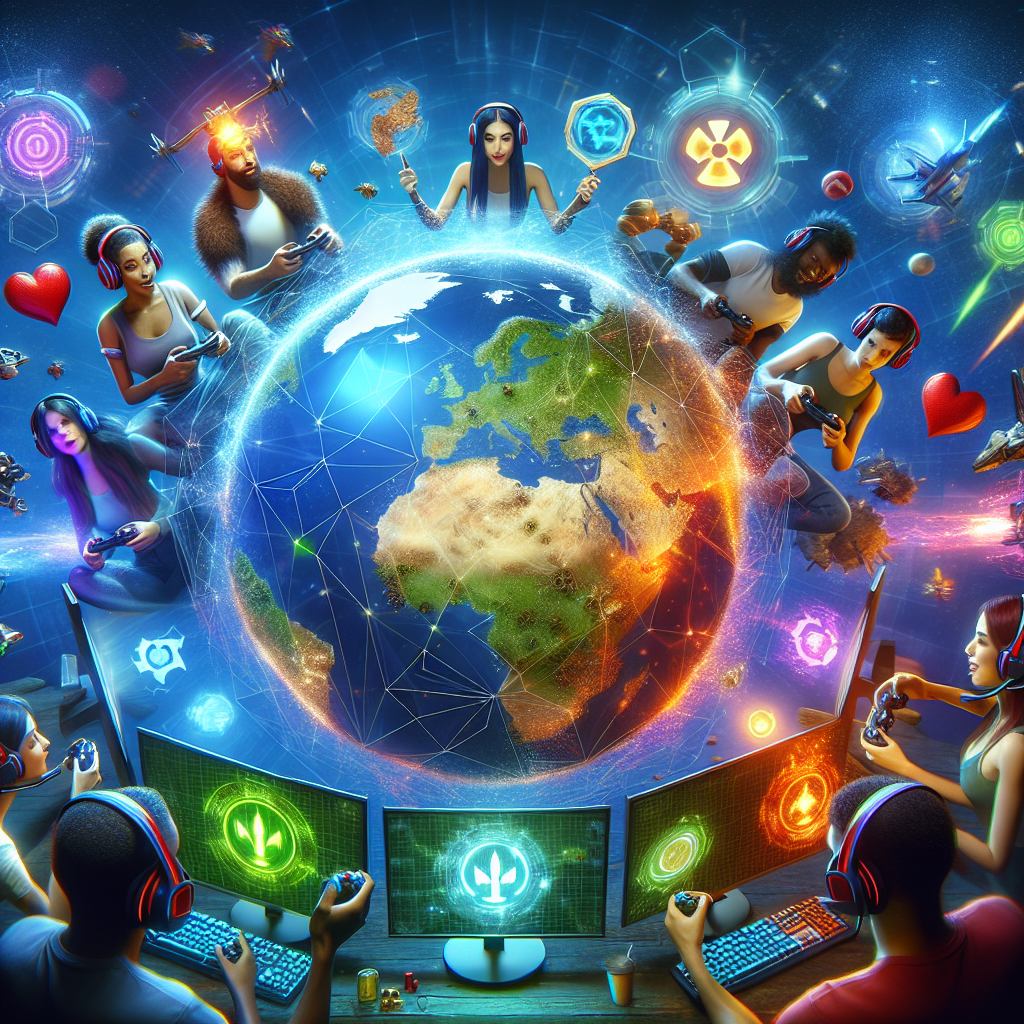Leveling Up Together: The Power of Collaboration in Gaming Communities
In an era where digital interaction often supersedes in-person connections, gaming communities have emerged as vibrant hubs where collaboration thrives. Players around the globe unite, forming alliances and forging friendships that transcend geographical boundaries. These communities foster a sense of belonging, teamwork, and shared purpose, enhancing the gaming experience for everyone involved. As digital landscapes continue to evolve, the power of collaboration in gaming remains a significant and influential aspect of the industry.
The Social Fabric of Gaming
Historically, gaming was often viewed as a solitary activity. However, with the rise of online multiplayer games and social platforms, gaming has transformed into a communal experience, bringing players together from diverse backgrounds. Titles like “World of Warcraft,” “Fortnite,” and “Among Us” exemplify how collaboration can enhance gameplay—whether through forming parties, strategizing, or simply engaging in friendly banter.
The camaraderie developed within these communities can lead to lasting friendships, creating a social fabric that enhances the overall enjoyment of gaming. Players become allies, relying on one another to achieve goals, overcome challenges, and share in victories. This sense of belonging and support transforms gaming from a mere pastime into a lifestyle.
Collaborative Gameplay: A Winning Strategy
In many cooperative games, collaboration is not just encouraged; it is often a prerequisite for success. Team-based strategies, communication, and the blending of individual strengths create a synergy that elevates gameplay. Consider the realms of competitive eSports, where teamwork can mean the difference between victory and defeat. Teams like Cloud9 and G2 Esports demonstrate how effective collaboration can lead to championship titles, showcasing the power of shared goals and coordinated efforts.
Furthermore, games designed around collaborative mechanics, such as “Overcooked” and “Minecraft,” emphasize the importance of working together. Players must combine their skills and creativity to navigate challenges, fostering a mindset of teamwork and collective problem-solving. These experiences illustrate that collaboration not only enriches gameplay but also cultivates essential life skills like communication, planning, and adaptability.
A Platform for Growth and Learning
Beyond the immediate thrill of gameplay, collaborative gaming communities serve as platforms for personal and professional growth. Players often share knowledge, tips, and strategies, contributing to a culture of continuous learning. Forums, Discord channels, and social media groups become spaces for exchanging ideas, discussing game mechanics, and analyzing strategies. This collaborative environment fosters improvement, encouraging players to push their limits and refine their skills.
Moreover, gaming communities are increasingly promoting inclusivity and diversity. Initiatives such as women-in-gaming groups and LGBTQ+ gaming organizations create supportive spaces where everyone can contribute and thrive. By working together, these communities challenge stereotypes and empower underrepresented players, highlighting collaboration’s vital role in fostering acceptance and understanding.
The Evolution of Collaborative Tools
The tools that facilitate collaboration within gaming communities have also advanced significantly. Platforms like Discord have revolutionized how gamers communicate, allowing for real-time voice chat, messaging, and screen sharing. These technologies enable players to strategize and collaborate seamlessly, enhancing the overall gaming experience.
Additionally, many games now incorporate built-in collaboration tools, such as shared inventories or team objectives. These features further solidify the importance of working together, encouraging players to unite their strengths for a common goal. As technology continues to evolve, the means by which players collaborate are likely to become even more sophisticated, paving the way for richer interactions and experiences.
Conclusion: The Future of Gaming Communities
As the gaming industry continues to grow, the collaborative spirit within gaming communities will remain a driving force. The bonds formed through shared experiences, the skills developed through teamwork, and the learning opportunities provided by diverse perspectives are invaluable. For players, collaborators, and game developers alike, understanding and leveraging the power of collaboration will be essential for enriching the gaming landscape.
In embracing this collaborative ethos, gaming communities will continue to inspire and elevate their members, collectively leveling up in the process. Whether through celebrating victories or learning from losses, the journey of leveling up together remains one of the most rewarding aspects of the gaming world—a testament to the inherent power of unity and cooperation.




